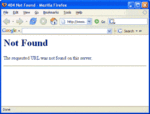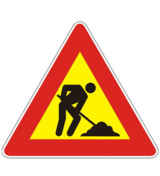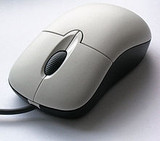The Prodigious Dream: Free Internet without Ads
The reason why Notebookcheck has ads, and the alternatives the media industry is currently considering.
For the original German article, see here.
Reviews are written quickly

Readers generally associate the name Notebookcheck with laptop reviews and the like. It is truly about quality and popular content, but the production of this content is complex. Many believe that manufacturers and shops pour products for review right into our lap, which certainly would be sensible, seeing as they profit greatly from our reviews. Nevertheless, finding and organizing opportunities to borrow products is laborious.
Once we have the device we have to do all sorts of extensive measurements, then text (about 4,000 words per review) and photos are produced and uploaded to the Content Management System. After that, the content needs to be edited, and finally distributed for translation. It takes about 30 hours of work for each text released in two languages. Some reviews are released in up to 11 languages, all of which are accessible online at Notebookcheck. Since the authors are paid per assignment, there is no reason for them to dawdle -- it simply takes that much time to do the work. Currently about 40 reviews and related articles are released per month, but there is also all sorts of other editorial content. The website also has to be maintained -- the webmaster of an online magazine updated on a daily basis constantly has work to do. Income has to be put in order. Even if we use external marketers, we still have to rack our brains all the time over ad space, campaigns, costs per thousand visits, click rates, etc. Notebookcheck is not spared from unavoidable bureaucratic overhead, accounting must be done and absurd legal regulations of all kinds must be satisfied. The more people work for the company, the more extensive management becomes. Finally, the whole editorial staff has to be coordinated in many different ways. No one knows exactly how many people are working on the website at once, but there are regularly over 40. In short, tens of thousands of hours of work per year go into what you see on Notebookcheck.
读者普遍关联的名称与笔记本电脑的评论Notebookcheck等。它是真正的质量和受欢迎的内容,但此内容的生产是复杂的。许多人认为,厂家和商店倒到我们的腿上,这当然是明智的,看到从我们的评论,因为他们大大受益产品进行审查权。然而,寻找并组织机会借到产品是费力。
一旦我们的设备,我们需要做的各种广泛的测量,然后文本每回顾(约4000字)和照片上传到内容管理系统。在那之后,需要对内容进行编辑,翻译的最终分发。大约需要30个小时的工作,为每个文字两种语言发布。一些评论被释放多达11种语言,所有这一切都可以在网上Notebookcheck。由于作者支付每项任务,也没有他们磨蹭的原因 - 它只是需要那么多时间做的工作。目前,大约有40条评论和相关文章,每月发布,但也有各种其他的编辑内容。该网站还必须保持 - 站长的在线杂志每天更新,不断有工作要做。为了把收入。等Notebookcheck即使我们使用外部营销,我们还是要动脑筋,所有的时间,广告空间,运动,每千次访问成本,点击率,也不能免于不可避免的官僚开销,占必须做的,荒谬的法律法规各种必须得到满足。越来越多的人在公司工作,成为更广泛的管理。最后,整个编辑工作人员有许多不同的方式进行协调。没有人知道究竟有多少人在网站上工作一次,但也有超过40定期。总之,数万数千小时,每年工作到你看到Notebookcheck。
Money can't buy happiness
Many bloggers and website operators have so much fun posting that they don't even think about the commercial aspects of Internet magazines. Notebookcheck's three founders also started the site as a side activity in their free time -- in the first year there was hardly any money in it. In the second year, too, none of them could live off their earnings from the site. In the US, founders of IT companies use something they call the "Ramen profitability level" to measure a company's level of success: When a company can provide the funds necessary to feed its employees with the Japanese Instant Ramen Noodles then it has become "Ramen profitable." Most blogs, forums and other websites never reach this level. Operators of smaller IT sites are geeks, often students, who use their free time to publish interesting information on the Internet. When these people start families or get otherwise involved, time runs short. Without a financial perspective, most sites simply disappear. The number of people who want to work for free over long periods of time is understandably very small. In short, our writers and translators want to be paid.
How much money is reasonable for employees to be earning per hour: 10, 20, 30 Euros (~$13, $26, $39), or more? Everyone may determine their own answer to that question and then multiply it by thousands of hours of work. That is then Notebookcheck's yearly service expenses and the numbers are in the six-digit range. Are we especially lavish? No, similarly sized online branches of magazine publishers usually burn yearly expenses in the seven-digit range, because publishers from the golden era of print are used to very different company structures. For instance, unlike many print publishers, Notebookcheck does not have a single office property.
许多博客和网站运营商有这么多的乐趣发帖称,他们甚至不认为有关商业方面的互联网杂志。 Notebookcheck的三位创始人也开始在他们的空闲时间作为一个侧面活动网站 - 在第一年几乎没有任何金钱。在第二年,也没有一个人能活过他们的收入从网站上。在美国,IT公司的创始人用他们称之为的“拉面盈利水平”衡量一个公司的成功水平的东西:当一家公司可以提供必要的资金养活的日本料理即时拉面面条及其雇员,然后它已经成为“拉面有利可图的。“大多数的博客,论坛和其他网站从来没有达到这个水平。较小的IT网站的运营商是怪才,往往学生,用自己的空闲时间在互联网上发布有趣的信息。当这些人开始家庭或以其他方式参与,运行时间短。如果没有金融的角度来看,大多数网站只是消失。免费工作过很长一段时间的人谁想要的数量是可以理解的非常小。总之,我们的作家和翻译要支付。
多少钱是合理的员工每小时收入:10,20,30欧元(约13元,26元,$39),或更多?每个人都可以决定自己问题的答案,然后将其乘以数千小时的工作。然后Notebookcheck每年的服务费和数字是六位数的范围内。我们特别阔气吗?不,同样大小的在线杂志出版商分行通常燃烧每年的开支在七位数的范围内,因为出版商的黄金时代打印使用非常不同的公司结构。例如,与许多印刷出版商,Notebookcheck并没有一个单一的办公物业。
What do you do with mountains of money?

Some will now think when media companies earn more money they probably spend it on rubbish like dizzying manager salaries. What do I care about a new luxury company car for Notebookcheck? My car is a 12-year-old Twingo; my brother even remarked that his lawnmower has more PS. Usually I prefer to use my 20-year-old bike, which thieves have twice left behind out of pity...
In the last few years, we have spent more of our growing income on new content -- for instance, we now publish many more reviews than before, and they are much more elaborate than they were in our humble beginnings. On the other hand, we would have to reduce the amount of new editorial content if our earnings were to sink long-term.
现在,有些人会认为,当媒体公司赚更多的钱,他们可能把钱花在令人目不暇接经理薪酬的豆腐渣样。我在乎的是一个新的豪华车公司Notebookcheck什么?我的车是12年的老俪,我的兄弟,甚至说他的剪草机有更多的PS。通常我喜欢用我的20岁的自行车,盗贼曾两次留下出于怜悯...
在过去的几年中,我们已经花了我们日益扩大的收入更多新的内容 - 例如,我们现在发布的评论比以前多,而且他们是比他们在我们的谦逊的起点更加精细。另一方面,我们将有新的编辑内容,如果我们的盈利下沉长期量减少。
Objective reporting and money - fire and water
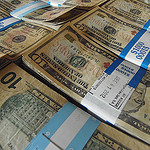
The German consumer's magazine Stiftung Warentest requires a subscription and thus completely dispenses with advertisements, emphasizing that they can only ensure total independence by imposing that subscription cost. We don't offer this radical approach, currently we are financed exclusively through advertisements, but we only tolerate ads that can be clearly recognized as ads by any lucid reader. Time and again individual readers accuse us of allowing manufacturers to pay us to give them good ratings in our reviews. Grotesquely, these accusations often concern a large, very well-known US manufacturer, who has never advertised on our site in any sort of appreciable way. Let me emphasize that we never accept any kind of contribution from manufacturers or shops for the content of our articles. With great concern, we observe that the lines between content and ads are becoming blurred by many other media sources.
It worries me even more that a large number of Internet users cannot discern the objectives of other informational sites. How objective is a corporate blog, for instance a notebook review, published by a notebook retailer? How believable is the report of an excited customer's experience? We are partly talking about consumers who buy a new notebook every 1-2 years without being able to take their own measurements and who have not held all sorts of comparable current devices in their hands. However, we are also partly talking about anonymous writers who, disturbingly, often are actually retailers of the same or similar products, or who have been motivated by retailers to write about their "customer experience". I am especially "happy" to hear that other media sites have recently started to request readers to contribute reports of their experiences, which are then given to an advertising customer to select for publishing. We all know those are not critical reviews. Notebookcheck has ad banners, which admittedly are annoying, but that is our clearly defined, identifiable source of finance. Allowing advertising customers to influence the content of our editorial articles would not be tolerated, nor will it ever be.
德国消费者杂志“商品检验基金会需要订阅,从而彻底摒弃了广告,强调他们只能确保完全独立的气势,认购成本。我们不提供这种激进的做法,目前我们的资金完全通过广告,但我们只能容忍任何清醒的读者可以清楚地认识到广告的广告。一次又一次,个别读者指责我们允许制造商向我们支付给他们良好的收视率在我们的评论。不伦不类,这些指责往往涉及一个大的,非常著名的美国制造商,谁从来没有任何形式的明显的方式在我们的网站上的广告。我要强调,我们从来没有接受什么样的贡献,我们的文章内容制造商或商店。怀着极大的关注,我们观察到许多其他媒体来源的内容和广告之间的界限正变得模糊。
这令我更担心,大量的互联网用户无法辨别其他信息类网站的目标。目标是建立一个企业博客,比如,一个笔记本审查,笔记本零售商公布?报告激发顾客的体验是如何可信?我们部分谈论买一个新的笔记本的消费者谁不能够拿自己的测量和比较当前各种设备在他们手中没有持有每1-2年。但是,我们也有一定的谈论匿名作家谁,令人不安的是,往往是实际上是相同或相似的产品,或者谁已经出于零售商写关于他们的“客户体验”的零售商。我特别“高兴”听到其他媒体网站最近已经开始要求读者贡献他们的经验的报告,然后再提供给广告客户选择出版。我们都知道,这些都不是关键的评论。 Notebookcheck有广告横幅,这固然是恼人的,但是这是我们明确的界定,识别的资金来源。允许广告客户影响我们的社论文章的内容将不会被容忍,也不会永远。
Where the problem now lies

Currently Notebookcheck has no financial problems. Quite the opposite, the last few years our finances have steadily risen -- in the range of percentages in the double digits each year. Nevertheless we are watching the media landscape, and there we see dark clouds brewing across the whole Western world; clouds that are hardly recognized by the public.
Companies pine for the 80s and 90s. An advertiser paid for a spot in a newspaper or a TV commercial so that consumers would see the ad. The profitability of an ad could only be estimated indirectly. For print media and television that has not changed, though each year print media are losing consumers who favor the Internet. Many people responsible for marketing long for the simple world of newspaper advertisements. The number of editions and the size of the ad were considered, then voilà you had the price. The number of print publications was also easy enough to grasp. Usually advertisers knew their points of contact well. But the Internet is a gigantic behemoth with innumerable technical options for the optimization of advertisements.
Over time, a bad habit has snuck into relationships between advertisers and website managers. In Internet advertising, the advertising customer only wants to pay after they have looked at how often their link is clicked, or how often a customer lands on their website and consequently buys their product. In print media or television that is simply not possible. These new options to evaluate the relevance of an online ad are fundamentally positive, but the problem lies in the fact that advertisers are motivated to blur the lines between ads and content, and advertising effectiveness is completely ignored. Since ads are rarely clicked, the prices of ads have steadily dropped. Companies have released numbers indicating that advertisers pay in the range of 7(!) times less for the same breadth of customers reached online vs. through printed newspapers and magazines. Whereas before people only held papers in their hands, now they consume news in the same volume on the computer. However, advertising expenses have not followed those factors. Advertising customers don't keep their advertising budgets the same for print and online expenses, so they reduce the price they're willing to pay for Internet ads. But that's not the only problem.
目前Notebookcheck有没有财务问题。恰恰相反,过去几年我们的财政状况一直在稳步上升 - 在每年两位数百分比的范围。不过,我们正在观看的媒体景观,我们看到乌云酝酿在整个西方世界,难以被公众认可的云。
公司的松树上世纪80年代和90年代。支付现场会在报纸或电视广告的广告客户,让消费者看到广告。广告的盈利能力只能进行间接估算。对于印刷媒体和电视,并没有改变,虽然每年的印刷媒体正在失去消费者青睐互联网。很多人负责,只要简单的世界报纸广告营销。版本的数目和大小的信息被认为是,那么瞧你的价格。印刷出版物的数量也很容易掌握。通常广告主知道他们的接触点。但是,互联网是一个巨大的庞然大物,有无数的技术选择优化广告。
随着时间的推移,一个坏习惯已经悄然进入广告商和网站管理者之间的关系。在互联网广告,广告客户只希望支付后,他们已经看了多久的链接被点击,或者往往是客户在其网站上的土地,因此购买他们的产品。在平面媒体或电视上说是根本不可能的。这些新的选项来评估在线广告的相关性基本上是积极的,但问题的关键在于广告的动机,广告和内容之间的界线模糊,广告效果是完全被忽略的事实。由于广告是很少点击广告,价格稳中有降。公司已公布的数字显示,广告客户支付的范围7(!)倍以下的为同一客户的广度达到通过在线与印刷报纸和杂志。而在此之前人们只举行论文在他们手中,现在他们消耗在相同体积的计算机上的消息。然而,广告开支并没有跟随这些因素。不要让广告客户的广告预算相同的印刷版和在线费用,所以他们降低价格,他们愿意支付的互联网广告。但是,这并不是唯一的问题。
Making bothersome ads invisible -- a customer-friendly concept
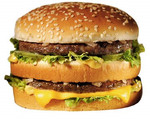
Years ago, an advertising specialist tried to convince me that certain studies showed web surfers considered ads (especially the marketer's own ads) an enrichment of their Internet experience. In reality, advertising has always been unpopular with consumers. People do not want to see ads and certainly do not want to click on them. Only one out of 100 or 1000 promotional ads on the Internet is clicked. It is more and more common now that web surfers simply run software to make ads invisible. One provider of such software said in an interview that only obtrusive ads would be blocked. I have yet to see a website on which ad-eliminating software performs its job as thoroughly as it can. In the interview, the provider said that they had a list of website operators who followed certain guidelines for customer-friendly ads, and after an application process the operators' ads could be spared. How convenient it is for the ad-blocker providers that big companies have to pay to get on this list. Ad-blockers are made a further nuisance for site owners as there are literally dozens of ad-blocking software for owners to consider. There was a virus scanner preinstalled on my laptop, and I installed another on top of it. Both block ads without being asked. I didn't know a thing about it, it was probably mentioned in tiny print in the "Terms and Conditions" text that no human being actually reads. When I tried to shut off this function, my virus scanner repeatedly urged me to refrain from following through with my intended purpose, claiming that my computer's security would be endangered by these ads.
Let's not ignore what may be a common occurrence -- if ad-blocking is preinstalled, very few people deactivate it; according to the aforementioned interview the number is around 1%. One Internet provider in France went a step further. All customers who gained access to the Internet through this provider would have all Internet ads blocked automatically. The French media cried out and in the end, the French government "convinced" the provider to take a step backwards, even though the provider had done nothing illegal. This clarifies for us the possible scope of effective ad-blocking systems. On IT sites especially, where technically savvy readers are browsing, the quota for blocked ads comes to 25% or sometimes up to 50%. Those who use ad-blockers on a site financed by ads are freeloaders -- they utilize the service without any kind of payment in return. In regards to the use of ad-blockers on such a site, the act can be compared with fare dodging in public transportation or dining-and-dashing at a restaurant. The only difference is that the Internet surfer cannot be legally obligated to click on advertisements.
几年前,一家广告专家试图说服我,某些研究显示,网民认为广告(特别是营销人员的自身广告)丰富他们的互联网经验。在现实中,广告与消费者一直不受欢迎。人们不希望看到的广告,当然不希望点击它们。只有一个100或1000的促销广告在互联网上被点击。这是现在越来越多的普通网民只需运行软件,使无形的广告。这样的软件供应商之一,在接受记者采访时表示,只有突兀的广告将被封锁。我还没有看到一个网站上,消除广告软件,因为它可以彻底地执行它的工作。在采访中,供应商说,他们有一个名单的网站运营商遵循一定的准则,为客户友好的广告,一个应用程序后,运营商的广告可以幸免。如何方便它是为广告拦截供应商,大公司必须付出得到这个名单上。 AD-受体阻滞剂都做了进一步的滋扰网站所有者有几十个字面上的广告拦截软件为业主考虑。我的笔记本电脑上预装有一个病毒扫描程序,我在它上面安装另一个。这两个块广告没有被要求。我不知道关于它的事情,它可能是小字中提到的“条款和条件”实际上没有人读的文本。当我试图关闭这个功能,我的病毒扫描仪反复叮嘱我不要从下面通过与我的预期目的,声称这些广告我的电脑的安全就会受到威胁。
让我们不要忽略什么可能是一个普遍的现象 - 如果广告拦截预装,很少有人停用它根据上述采访的数量大约是1%。在法国互联网服务提供商更进了一步。所有客户获得到互联网,通过这个提供者会自动封锁所有互联网广告。法国媒体哭了出来,并在年底,法国政府“说服”提供者采取一种倒退,即使提供了做什么违法的。这阐明我们有效的广告拦截系统的可能范围。 IT网站,尤其是在技术上精明的读者浏览,阻止广告的配额至25%,有时高达50%。那些由广告资助的网站上使用AD-受体阻滞剂是贪图便宜 - 他们利用该服务无需支付任何形式的回报。关于这样的网站上的广告-受体阻滞剂的使用,其行为可与票价躲着公共交通工具或餐饮及潇洒的在餐厅。唯一的区别是,互联网冲浪者可以不被法律上有义务对广告的点击。
There's no advertising in paradise
It's true that the Bible doesn't tell us that the snake used a billboard to convince Adam and Eve to eat the apple. But if one were to dare to call the Internet paradise, what would happen to this Internet paradise without ads and without a financial replacement for ads? I believe most Internet users underestimate the tremor this would cause. If advertisements in the broader sense (so price comparisons included, for instance) were completely abolished without a replacement, innumerable business models would cease to function and websites would disappear in rapid succession. That includes all publishing media, all blogs that entertain the hopes of earning money, search engines, price comparison sites, social media, YouTube, even Internet mail providers.
What would still work? Websites that serve as digital business cards for companies or private individuals, and online stores. Unfortunately, those stores would be hard to find without advertisements, and there would not be any search engines to fall back on, since they also live off of ads. Simple, self-explanatory domain names would become extremely important, since stores and private sites could only be reached via domain names or bookmarks. There would also still be informational sites, run on the one hand by government agencies and on the other by businesses wanting to attract visitors, like tax advisers, lawyers, doctors, etc. But there can be no doubt: Without advertisements and without an alternative model to finance websites the Internet would become a wasteland. Independent high-quality journalism, as we now know it, would shrink to a minimum. And that would provoke even sluggish governments to action.
这是真的,圣经没有告诉我们,蛇用广告牌来说服亚当和夏娃吃苹果。但是,如果一个人敢叫互联网的天堂,什么会发生在这个互联网的天堂没有广告,没有金融更换广告?我相信大多数互联网用户小看这会导致震颤。如果在更广泛意义上的广告(包括价格比较,例如)更换没有被完全废除,无数的商业模式将停止运作,网站将连续快速消失。这包括所有的出版传媒,娱乐赚钱的希望,所有的博客,搜索引擎,价格比较网站,社交媒体,YouTube上,甚至互联网邮件提供商。
什么工作?作为数字名片的公司或个人,和网上商店的网站。不幸的是,这些门店将很难找到没有广告,就不会有任何搜索引擎依傍,因为他们还活广告。简单,不言自明的域名将成为极其重要的,因为可能只能达到通过域名或书签的商店和私人场所。也仍然是信息类网站,一方面由政府机构和其他运行企业希望来吸引游客,如税务顾问,律师,医生等,但有一点是毫无疑问的:没有广告,没有替代模型融资网站在互联网将成为一片荒地。独立的高品质的新闻,因为我们现在知道它会缩小到最低限度。 ,甚至会招来低迷政府采取行动。
Alternative financing on the Internet, evil prospers
Cumbersome words like "Paywall" and "ancillary copyright," also called "Lex Google" by those opposed, are wandering like ghosts around the Internet.
The German Institute for Public Opinion (das Institut für Demoskopie) recently published a survey in which 5% of all Internet users said they would be willing to pay for news on the Internet. Taking the "the glass is half empty" approach, we can deduce that 95% are not willing. I do not think we really need a survey to discover the answer to that question; moreover, a verbal agreement with the concept of paying for Internet without any real commitment is very different from the prospect of constantly watching funds pulled out of your credit card. Informed surfers would be able to get around imperfect paywalls easily. If paywalls were effective, many people who were not ready to pay for Internet would simply disappear from the service, greatly reducing the scope of users. Moreover, those willing to pay for the medium certainly would not want to be bothered by ads galore. One question is whether Paywall could compensate for the finances lost due to the disappearance of advertisements. Most people doubt it could, but publishing houses are currently practicing calculated optimism, which sounds like a motivating slogan. Supposedly, successful examples are mentioned. In the German controversy there is talk about Stiftung Warentest (a consumer magazine), which has been using a restrictive paywall on their website for years. The magazine has released extensive circulation and economic data. The circulation of their printed material has sunk 3.5% from 2010 to 2011, but their online paywall revenue has risen by 8%. That sounds like things are going uphill, but there is an important catch. Print revenue is 15% higher than online revenue, which means the increased paywall revenue cannot compensate for the losses in the print arena. If I were to guess at how much Stiftung Warentest could currently be earning with advertisements, I have no doubt whatsoever that test.de could earn more with ads.
So, Internet surfer, the central question: If you had to pick between ads and a subscription charge for Internet, which is the lesser evil? Those who choose ads should accept them and give them due respect.
繁琐的话像“Paywall”和“辅助版权”,也被称为的“LEX谷歌”那些反对,像幽灵一样游荡在互联网。
德国公共的意见(DAS研究所献给Demoskopie)研究所最近公布的一项调查,其中5%的互联网用户表示,他们将愿意支付在互联网上的消息。以“玻璃是半空”的做法,我们可以推断,95%都不愿意。我不认为我们真的需要一个调查,发现这个问题的答案,而且,与其达成口头协议为互联网支付的概念,没有任何真正的承诺是非常不同的前景不断看掏出你的信用卡资金。知情冲浪者将能够得到解决不完善paywalls容易。如果paywalls是有效的,很多人还没有准备好,以支付互联网只是从服务中消失,大大降低了用户的范围。此外,那些愿意支付介质肯定不希望被人打扰广告嘉豪。其中一个问题是,是否Paywall可以弥补财政损失,由于广告的消失。大多数人对此表示怀疑,但目前实行计算出版社乐观,这听起来像一个激励口号。据称,成功的例子被提及。在德国的争议,有谈论商品检验基金会(消费者杂志),并已在其网站上使用限制性付费墙多年。该杂志已经发布了广泛的流通和经济数据。其印刷材料的循环已经沉没2010至2011年的3.5%,但他们的网上付费墙收入已经上涨了8%。这听起来像是上坡,但还有一个重要的渔获。打印的收入高出15%,这意味着付费墙增加的收入无法弥补的损失,在打印领域的在线收入。如果我猜多少商品检验基金会目前可与广告收入,我有毫无疑问,test.de可以赚取更多的广告。
因此,上网冲浪,中央的问题:如果你不得不选择广告和互联网的认购费之间,这是两害取其轻?选择广告的人应该接受他们,并给予他们应有的尊重。
Call the cavalry, the legislators

Somehow the publishing houses don't seem to believe in the continued success of online ads nor paywalls, so they have worked out something called an ancillary copyright. There are concise and understandable explanations as to what that is. But if the explanation seems simple, something's wrong, because different players understand ancillary copyright to be different things.
The fundamental argument is that copyright and media law should be reformed, above all to adapt to the Internet. Copyright law is especially unclear in some areas, for example, whose rights should be protected and to what extent. Here publishers and authors are better protected. Possibly even simultaneously. I've never come across anyone who's railed against this. But in the same way that a computer virus latches on to a program to make its way on to another computer, so are the legislators supposed to create a new, more explicit formulation of citation rights to piggyback on a copyright protection law. Now, the computer virus metaphor is a very negative one, and I don't want to express my opinion quite so negatively -- it is true that more explicit laws regarding citation (i.e. what can be quoted in what context, how long the quote can be, etc.) would indeed be useful for copyright protection. So powerful German publishers sent lobbyists to their government to assert their interests, which brought an actual legislative proposal into German parliament. Those who never heard about it don't need to feel ashamed -- the whole thing was very discreet and unusually quick. But the publisher's interests were not so much the improvement of legal security, their interests were rather money-related.
Specifically, the Internet giant Google was targeted. Google developed a very successful business model for the Internet over the years, but the publishing companies hadn't. Google links editorial contributions together with cited text and thus brings visitors to the publishers. In this way Google uses visitors as monetary tender by means of advertisements. Due to their gigantic scope of visitors the ad concept works for Google too. This means publishers and Google are in a sort of symbiotic relationship, though things are going more and more poorly for one side. For this reason the publishers want Google to pay them within the framework of ancillary copyright to even out the balance of power. The key here is citation rights. The publishers argue that Google quotes too much text, deterring web surfers from even visiting their sites. Officially, it's not all about Google: Anyone who cites too much text and earns money doing so should have to pay for a license. The argument has zeroed in on Google News, where Google doesn't even display ads. So far I haven't figured out where the publishers want the legal boundary line for Google's conventional search results to be drawn. Supposedly Google includes more text on their Google News page. I pulled up a few samples to test this theory. Not including the caption, I found that Google used about 135 characters on Google News and 125 in their Google search results. If Google were to shorten their citations by a few characters on Google News, how could you legally treat Google News and Google search results differently?
不知怎的,出版社似乎并不相信持续的成功在线广告也不paywalls的,所以他们已经摸索出一种叫做配套版权。有简明易懂的解释,那是什么。但是,如果解释似乎很简单,什么是错的,因为不同的球员了解配套的版权是不同的东西。
基本论点是,版权和媒体法律应进行改革,首先要适应互联网。版权法在某些领域,特别是不清楚的,例如,其权利应该受到保护到什么程度。这里出版商和作者得到更好的保护。甚至有可能同时进行。我从来没有遇到任何人的抨击。但在同样的方式,计算机病毒锁存到一个程序来作出自己的方式到另一台计算机,所以是应该创建一个新的,更明确的表述,引用权捎带上的版权保护法的立法者。现在,计算机病毒比喻是一个非常消极的,我不想说出自己的意见相当如此负面 - 这是事实,更明确的引用有关的法律(即什么可以报价在什么背景下,如何报价可等),确实是有用的版权保护。因此,强大的德国出版商派出他们的政府游说者坚持自己的利益,这带来了一个实际的立法建议,到德国议会。这些人从来没有听说过它不需要感到羞愧 - 整个事情是非常谨慎的,不寻常的快。但出版商的利益没有那么多的法律安全性的提高,他们的利益,而与钱有关。
具体来说,互联网巨头谷歌的目标。谷歌开发了一个非常成功的商业模式,多年来为互联网,但没有出版公司。谷歌链接投稿一起引的文字,从而带来了游客向出版商。在这种方式中,谷歌使用作为货币货币的游客通过广告。由于其巨大的游客范围的广告概念也为谷歌工作。这意味着出版商和谷歌是一种共生关系,但事情会更差的一面。出于这个原因,出版商希望谷歌向他们支付附属版权的框架内,甚至出的力量平衡。这里的关键是引用的权利。出版商认为,谷歌引述太多文字,阻止网民甚至访问他们的网站。据官方统计,这是不是所有关于谷歌:谁引用了太多的文字,这样赚钱的任何人都应该有支付牌照。在谷歌新闻,谷歌甚至不显示广告的论点已经归零。到目前为止,我还没有想出出版商希望谷歌的常规搜索结果的法律边界线绘制。据说谷歌有更多的文字在他们的谷歌新闻页面。我拉了几件样品测试这一理论。不包括标题,我发现,谷歌谷歌新闻和125在他们的谷歌搜索结果上使用的约135个字符。如果谷歌缩短他们引用几个字符在Google新闻,你怎么能合法地对待谷歌新闻和谷歌的搜索结果不同?
War of the worlds

Google defends itself for example with the argument that every website operator is able to put themselves on a list to prevent Google from accessing their site. But the publishers are fully aware of the benefit they gain from Google's links; yet Google should pay. Google could just throw media sites off of their search hit lists, but the publishers are gambling with the EU competition law. On the basis of Google's power position -- after years of legal proceedings -- this could work out for the publishers.
But if Google loses the antitrust suit, how can Google be stopped from just moving the media sites to lower positions so they are not seen as much? To stop that Google would have to disclose their constantly changing algorithms to the authorities. These algorithms are worth billions -- whether cynic or realist, we have to assume that there would be leaks from the authorities.
While the general public hardly received any details about the cumbersome special material that only lawmakers can truly understand, a downright war between the media began to rage. The war on the front lines was above all between online media and print publishers. The online media side was angered because politics tried to have it simple and squirm like an eel in the mud between the front lines. The government admitted that draft bills involved diverse ambiguities that jurisdiction needs to clear up. In plain language that just means waves of lawsuits.
Outside of Germany the media war is raging just as heavily. The Irish publishing association triggered international astonishment when they sent a charitable organization a four-digit bill because the charity linked to their publishing content a few times. The emphasis was on "linked," there wasn't even any cited text, unlike Google. The Irish paddled backwards after that, but I have some questions. Do those responsible for the Irish publishing association know how the Internet works? Do they even want Internet, or do they long for the pre-Internet era? PR action? Then it ended with a foreseeable slap in the face.
In France and Belgium there was an agreement between Google and the publishing companies. In France Google is investing 60 million in a fund to support digital projects. As far as anyone knows, the only applications have been from print publishers. An "independent commission" decides who wins, made up of Google associates, government representatives (though the politicians are dependent on the goodwill of the publishing companies), as well as representatives from publishers. Again, publishers bring forth proposals and publishers decide on the proposals... The precise details of the deal are not disclosed.
In Belgium there was an agreement, but the exact details of that agreement haven't been made public either. When big media companies cooperate and smaller media don't know anything about it (hundreds of bloggers and other site operators weren't sitting at the negotiation table), then somehow I have a suspicion that the concerns of big publishers get the better end of the deal. That would make sense for Google too -- make the dangerous opposition happy, and you can ignore the weaker adversaries.
In Germany there has yet to be an agreement; the publishers emphasize that the French and Belgian agreements aren't applicable to the situation in Germany. If there isn't a ceasefire, it might come to what happened in Brazil. Google banished the publishers. That's by no means optimal for the Internet users either -- in reality it's not good for anyone. But as is almost always true in war, there are many losers.
谷歌为自己辩护的说法,例如,每一个网站运营商能够把自己的一个列表,以阻止谷歌访问他们的网站上。但出版商的利益充分意识到他们获得来自谷歌的链接,然而谷歌应当支付。谷歌可能只是抛出媒体网站,他们的搜索列表,但出版商赌博与欧盟竞争法。这可能是工作的基础上,谷歌的权力地位 - 经过多年的法律程序 - 出版商。
但是,如果谷歌失去了反垄断诉讼,谷歌如何能停止只是移动媒体网站较低的位置,因此他们没有看见一样?要停止,谷歌将不得不披露其不断变化的算法当局。这些算法是价值数十亿美元 - 无论是愤世嫉俗者或现实主义者,我们必须假设当局会有泄漏。
虽然一般市民几乎没有收到任何细节繁琐的特殊材料,只有立法者才能真正理解,一个彻头彻尾的媒体之间的战争开始风靡。上述所有网络媒体和印刷出版商之间的战争的前线。在线媒体侧被激怒了,因为政治试图简单蠕动像鳗鱼一样在泥之间的前线。政府承认法案草案涉及不同的含糊之处,该司法管辖区需要清理。用通俗易懂的语言,只是意味着波的诉讼。
德国以外的媒体战争肆虐一样严重。爱尔兰出版协会引发国际惊讶,当他们派出了慈善组织一个四位数的法案,因为其发布内容的几次慈善挂钩。强调的是“联系在一起的,”甚至没有任何引用的文本,与谷歌不同。爱尔兰后向后划着,但我有一些疑问。做那些负责为爱尔兰出版协会知道互联网是如何工作的呢?他们甚至要上网,或做他们的前互联网时代?公关行动?然后,它结束了一个可预见的耳光。
在法国和比利时有谷歌和出版公司之间的协议。在法国,谷歌是一个基金,以支持数字项目投资6000万元。至于有人知道,唯一的应用程序已经从印刷出版商。 “独立委员会”决定谁获胜,谷歌联营公司,政府代表(虽然政客们依赖的出版公司的商誉),以及出版商的代表组成。同样,出版商提出的建议和,出版商决定的建议...精确的细节处理都没有透露。
在比利时有一个协议,但该协议的具体细节尚未公开。当大型媒体公司合作,规模较小的媒体不知道任何关于它的(数百个博客和其他网站的运营没有坐在谈判桌旁),然后不知何故,我有一个怀疑,大出版商的关注,得到了更好的最终这笔交易。这将使对谷歌的意义 - 使危险反对派快乐,并且你可以忽略较弱的对手。
在德国有协议还有待出版商强调,法国和比利时的协议并不适用于德国的情况。如果没有停火,它可能会在巴西发生了什么事。 Google放逐的出版商。这绝非最优的互联网用户 - 在现实中,它不是对谁都不好。但几乎总是在战争中,也有很多的失败者。
A full bottle feeds a hungry child
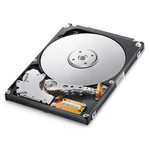
That child is the collecting society, called the VG Wort in Germany. It collects money and distributes it to authors and publishers. Or so goes the theory. This collecting society already exists and it already has money. In reality, Notebookcheck editors and even the Notebookcheck company could get money from the VG Wort. We're trying to do that right now, but the first signs are anything but encouraging. The child is flailing its fists at bureaucracy. The cost of getting to the money seems not to be very related to the usefulness of the society. Typically enough, I heard from a VG Wort employee that the bureaucratic cost is too high for Notebookcheck's claim to be viable. Other media and experienced authors have also had substantial problems trying to get money from VG Wort. Whether the bonanza reaches its targeted audience remains to be seen. Where else the money is trickling away is not a topic I want to speculate over.
The bottle is either Google (as I outlined) or, as is already the case, the consumer. Like in the music industry, buyers of storage media for various devices pay a contribution that flows to collecting societies. If Google, paywalls and online ads weren't sufficient, the club would then hammer taxpayers -- of that I'm pretty certain. Publishers still have power and influence, and that's the only way to stop Internet users from defending themselves.
那孩子是收集社会,被称为德国的VG Wort上。收钱和分发到作者和出版商。或去理论。本次征集社会已经存在,并且它已经拥有的钱。在现实中,Notebookcheck的编辑和甚至Notebookcheck公司能拿钱从VG麦汁。我们正在试图做的,正确的,但现在的第一个迹象是什么,但令人鼓舞。孩子挥舞着拳头官僚。得到的钱的成本似乎并没有被社会的用处非常相关的。通常不够,我听到从一个VG麦汁员工的官僚成本太高对Notebookcheck的说法是可行的。其他媒体和经验丰富的作者也有实质性的问题,试图让钱从VG麦汁。富矿是否达到它的目标受众,仍有待观察。其他的钱在哪里涓涓不是一个话题,我想推测。
瓶要么是谷歌(我提出的),或如已的情况下,消费者。在音乐产业一样,购买各种设备的存储介质流向收集社会付出贡献。如果谷歌,paywalls和在线广告是不够的,俱乐部将纳税人锤 - 我敢肯定。出版商仍然有权力和影响力,这是唯一的方式来阻止网民从保卫自己。
To cut a long story short
Internet users still have the chance to choose the lesser evil. I personally recommend ad banners -- any other alternatives smell like chaos to me. Those who don't appreciate advertisements at all or even use ad blockers to eliminate them are free riders, and they're conjuring up all sorts of evil.
互联网用户仍然有机会选择两害取其轻。我个人推荐的广告横幅 - 混乱,我闻起来像任何其他的替代品。谁不欣赏在所有的广告,甚至使用广告拦截,以消除他们的搭便车者,他们编造各种邪恶。





